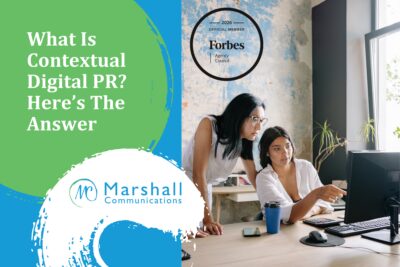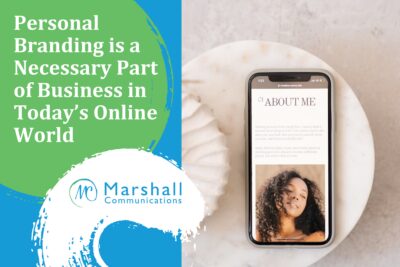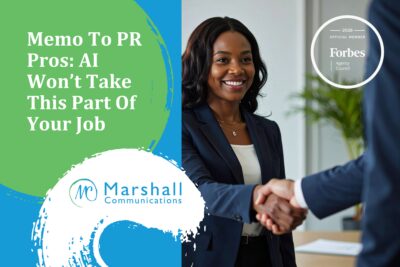Posted on: August 17, 2020
By Nancy Marshall, The PR Maven®

If you specialize in any field, the goal is to become a thought leader. You don’t want to just be good or even great — you’re striving for mastery. That’s how people will remember you. And that’s how they will know, like and trust you, so they want to do business with you. Being a thought leader is a path to success.
Whether you run a PR agency or you’re a leading astrophysicist, thought leadership can make you stand out from the crowd. Ideally, clients and customers will feel a sense of pride to be affiliated with you, and prospective clients and customers will seek you out.
So how do you become a thinker and a leader? It’s a two-step process: You need to actually master your field and then convey your mastery to the general public. To be considered a thought leader, simply being one isn’t enough — people need to know about it!
Look at it this way: When it comes down to being “the one” who is chosen for a job or a promotion, the person whom others have heard of will always be chosen over the unknown name. It’s just human nature.
That’s where content creation comes into play. From writing op-ed columns to publishing books and producing YouTube videos, creating content enables thought leaders to convince others that they have indeed mastered their particular subject matter. Creating the right content ultimately establishes credibility in the eyes of the beholder. Those who seek out a thought leader’s content inherently trust him or her to provide educational material that is worth consuming.
Of course, there are different kinds of content. Paid advertising is one, but it’s by no means a be-all and end-all. Consumers, whether they’re paying customers or just looking for information, are more likely to believe organic content (remember: trust and credibility). Blog posts, for instance, can go a long way in establishing your mastery, even though you’re not necessarily advertising with them.
The podcast is another important tool these days. More than 140 million Americans have listened to a podcast, with about 90 million listening on a monthly basis. That’s why I put out a new podcast every week.
I’m not generating millions of dollars in advertising revenue (actually, I am not generating any ad revenue), but I am creating organic content that adds value for people as well as my PR agency. So, when people search for my name, my agency’s name or PR topics in general, organic content of mine is more likely to come up. Between 70% and 80% of consumers prefer organic search results (as opposed to paid search). In fact, organic SEO is nearly six times more impactful than paid search ads.
The key is to create content regularly so you can reach your current audience and new audiences with new information. If people turn to you for education of some kind, they will want to keep coming back for more — if you’ve established trust and credibility. In addition to my weekly podcast, that’s why I am publishing my second book and launching my first online course on “message mapping” this spring.
Yes, I run a PR agency full-time, but I carve out time and effort to create content because it’s important. I’m passionate about what I do and I have a lot to share, after having worked in PR for over 30 years!
After all, if you’re a thought leader, you want people to know that you’re still thinking. They want to know that you are passionate about what you do. With consistent content creation, you can show that you’re working and producing. It’s like your heartbeat — every piece of content becomes a part of your body of work. Athletes have wins and losses to their name, and thought leaders have everything they have produced and published over the years.
Eventually, if you’re creating the right content, people will watch and listen and read. They will remember who you are, and they will want to do business with you. Build it, and they will come.
This article originally appeared on the Forbes Agency Council CommunityVoice in May 2020.










